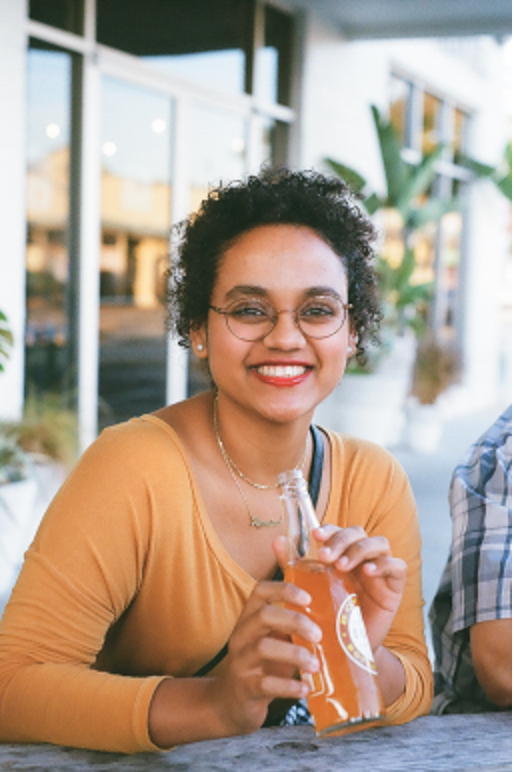Introduction to Strategies for Conducting Literary Research
You are viewing the first edition of this textbook. A second edition is available – please visit the latest edition for updated information.
Welcome to Strategies for Conducting Literary Research! This course walks you through the process of conducting literary research while helping to refine your library skills. Along the way, we will draw from the Association of College and Research Libraries (ACRL) Information Literacy Framework. According to the ACRL, “Research is iterative and depends upon asking increasingly complex or new questions whose answers lead to additional questions or lines of inquiry in any field.” We will discuss this concept more in-depth throughout the course. The course will focus on a research project created by Jada, an English major who conducted a literary study of James Baldwin’s classic short story, “Sonny’s Blues.”1
Meet Jada!

The Complexity of Literary Studies Research
In a research-based course, your instructor might require you to write a research paper of 5-6 or 10-12 pages, but the knowledge you need to perform this task can fill up dozens of pages. Writing about literature is a complicated, often messy process; it needs to meet high standards while incorporating knowledge from other fields such as psychology, history, science, and other arts. It entails knowledge about language, genre, structures, styles, and more. To produce good research about literature, we need to know a lot of things about a lot of things!
Although we discuss the research process in a linear fashion throughout these chapters, you’ll find that, in practice, literary research is a highly recursive process. We’re constantly circling back through the process as we write. Because writing instructors (even those who made this course) are locked into presenting the writing process in a linear way, we tend to discuss it in terms of stages such as preliminary research, drafting, revising, and so on. But writing a research paper requires us to rethink and redo our work at any stage. It’s not uncommon for writers to be in the middle of proofreading (one of the final stages) and realize they need to go back and gather more research. Though this course focuses on research about literature, the skills and knowledge in these modules apply to many other areas and topics, especially in the humanities.
Course Learning Objectives
- Understand the assignment
- Identify a research problem
- Develop audience awareness
- Enter a scholarly conversation
- Understand theory’s integral role within humanities research
- Understand how theory relates to particular research methodologies and methods for gathering evidence
- Learn to use online library catalogs, database search strategies, library services, citation management, and search alerts
- Evaluate source credibility
- Posit your research question
- Posit a thesis statement
- Compose a title
- Define your key term
- Write persuasively
- Write academic prose
- Steer clear of plagiarism
- Finish your research project

